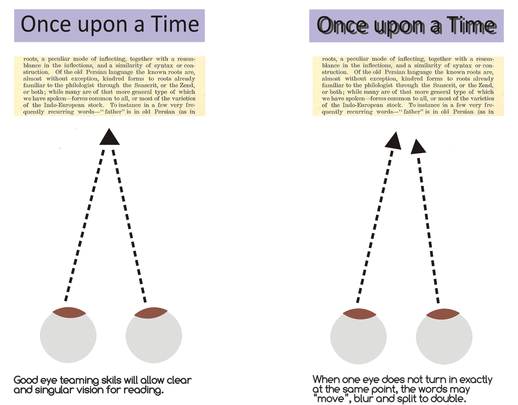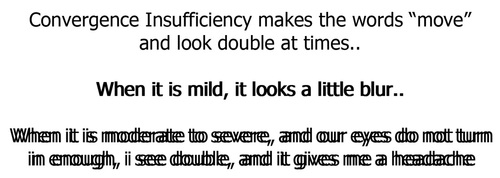Convergence Insufficiency
Convergence insufficiency (CI) is a common eye-teaming problem in which the eyes have a strong tendency to drift outward when reading or doing work close up. Double vision often occurs if an eye drifts out. To avoid seeing double, a child with CI must use extra effort to make the eyes turn back in. This extra effort can lead to annoying symptoms, such as eye strain, blurred or double vision, loss of concentration, and frequent loss of place when reading and working up close.
Children with CI have more symptoms and show worse attention when reading than children without CI. Research has shown that treatment using office-based accommodative-vergence vision therapy improves symptoms in children affected with CI.
At Vision and Learning Developmental Practice, we provide the latest equipments and skills to assess a child's eye tracking matched with norms, visual perceptual skills, visual information processing skills, and more to fully understand their learning abilities.
Please fill this form and get a complimentary short consultation at our office.
Children with CI have more symptoms and show worse attention when reading than children without CI. Research has shown that treatment using office-based accommodative-vergence vision therapy improves symptoms in children affected with CI.
At Vision and Learning Developmental Practice, we provide the latest equipments and skills to assess a child's eye tracking matched with norms, visual perceptual skills, visual information processing skills, and more to fully understand their learning abilities.
Please fill this form and get a complimentary short consultation at our office.


